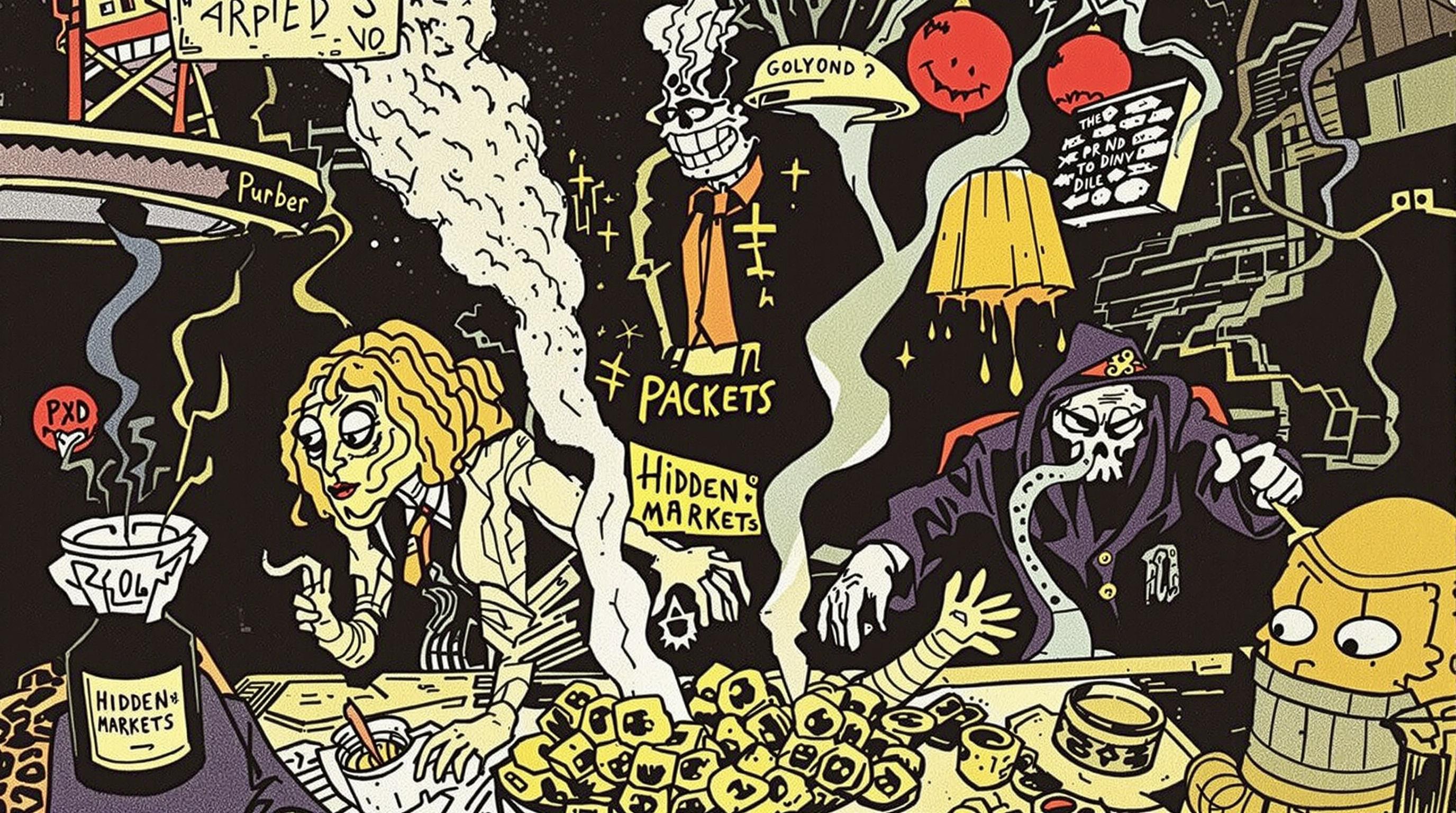Related Articles
- Invisible Threads: How Cultural Heritage Fuels Economic Growth in Off-the-Radar Communities
- How Unconventional Hobbies Can Boost Your Income: Exploring Unlikely Paths to Financial Enlightenment
- Uncommon Currents: How Waterways and Navigation Shaped Unexpected Economic Trajectories in Historical Contexts
- Whispers of Change: The Unlikely Role of Folklore in Crafting Today’s Privacy Policies and Data Protection Laws
- Surreal Shifts: The Unforeseen Role of Psychedelic Wellness in Global Consumer Preferences
- Unveiling the Financial Folly: How Conspiracy Theories Influence Market Behavior and Investor Sentiment
Whispers of Wealth: How Underworld Economies Shaped Influential Societies Through Secrecy and Trade
Whispers of Wealth: How Underworld Economies Shaped Influential Societies Through Secrecy and Trade
Underworld economies, often veiled in secrecy, have shaped societies throughout history, wielding influence far beyond their shadowy borders. This article delves into the intricate tapestry of illicit trade and secrecy, highlighting their powerful impacts on culture, politics, and wealth in various societies.
The Allure of the Forbidden: A Brief History
Throughout history, underworld economies have thrived in the margins of society. From the opium dens of 19th-century London to the bustling black markets of modern-day Venezuela, these underground trade networks often fill gaps left by legitimate economies.
Did you know that the illicit drug trade is estimated to be worth $320 billion annually? That’s a staggering figure that underscores just how significant these hidden economies can be. For many communities, the economic lifeline provided by such industries cannot be overlooked.
Trade Secrets: How Do They Operate?
Take a step back and imagine walking through a vibrant market, the air thick with the scents of spices, fruits, and exotic goods. Suddenly, a narrow alley catches your eye, and you notice individuals exchanging items under the watchful gaze of the law. This world is vivid with stories of risk, reward, and, most importantly, adaptability.
Underworld economies thrive on secrecy and innovation. For instance, the Mexican drug cartels have developed intricate methods to transport drugs across borders, employing everything from drones to submarines, evoking a sense of cat-and-mouse with authorities. Each new method of smuggling is a testament to human ingenuity and the lengths that individuals will go to claim a stake in the economy.
The Cultural Impact of Hidden Economies
In many cases, underworld economies shape cultures significantly. For example, in the heart of Palermo, Sicily, the influence of the Mafia extends beyond crime into legitimate businesses, social norms, and even cultural identity. Local folklore often romanticizes the 'honor' and 'code' of these organizations, blurring the lines between vilification and valorization.
Statistics reveal that organized crime contributes approximately $1.5 trillion to the global economy annually. This might raise eyebrows, but as society often turns a blind eye, it also leads to a complex relationship with these economies. Communities sometimes rely on these networks for employment, social security, and even access to goods deemed illegal elsewhere.
Case Study: The Prohibition Era in the United States
One of the most significant examples of an underworld economy in action is the United States during Prohibition (1920-1933). Banning the sale of alcohol only increased its allure and demand. Organized crime syndicates like those led by Al Capone thrived, creating vast networks for bootlegging and illegal speakeasies.
In the roaring 1920s, New York City alone had an estimated 30,000 speakeasies, illustrating the lengths to which people would go for a taste of forbidden fruit. Capone’s empire not only generated wealth for its members but also affected law enforcement, politics, and social life. The sheer audacity of such operations showcased how the desire for wealth and community can bridge societal erosions.
From Secrecy to Mainstream
In modern capitalism, parallels can be drawn between legitimate businesses and underworld economies. Consider how cryptocurrencies, originally meant to facilitate anonymous transactions, have evolved into a booming industry, generating over $3 trillion in the market as of 2023. This meteoric rise leads to questions about the future of money, values, and the potential normalization of secrecy in finance.
But let’s not forget the fun side of these economies! The early 2000s saw a spike in both curiosity and illicit enthusiasm as movies like “The Godfather” and “Scarface” glamorized crime and criminal organizations. People were treated to a fictional buffet, leaving them craving more knowledge about the treachery, power struggles, and wealth accumulation associated with these lifestyles.
The Dark Side of Wealth
Yet, the existence of underworld economies comes with a dangerous underbelly. The trade of weapons, human trafficking, and other forms of exploitation contribute to global crises that can be traced back to illegal trades. According to a 2022 UN report, efforts to combat human trafficking—a $150 billion industry—are consistently thwarted by the influence and reach of these underground networks.
One chilling statistic states that approximately 40.3 million people are trapped in modern slavery across the globe. These realities force us to acknowledge the darker claims to wealth that these economies might turn a blind eye toward, all in the name of profit.
Whispers of Change: The Future of Secrecy in Trade
As we look to the future, the dynamics of underworld economies are evolving. Technology plays a double-edged sword role, facilitating illegal trades while also enabling tighter regulation and monitoring by governments worldwide. Blockchain technology, for instance, can contribute to greater transparency in transactions if harnessed correctly; however, it also allows for anonymity, enabling illicit moves.
As a 24-year-old writer immersed in these themes, I wonder how the incoming generations will navigate these complexities. Growing up in a digital world that values privacy, will they unknowingly embrace these shadowy economies, making them more mainstream? Or will they push back against processes that exploit human dignity?
Conclusion: Can We Embrace the Shadows?
In conclusion, underworld economies are a permanent fixture of human society. They remind us that wealth is often acquired in the shadows and that the value of goods and services can differ significantly between the light of legality and the allure of illegality. Whether we choose to embrace, resist, or simply engage these economies, it’s essential to recognize their influential power on our societies and cultures.
As we dive into the whispers of wealth that spiral through our communities, the stories of both triumph and tragedy remind us that every economy, hovering on the brink of legality, is intertwined with the fate of mankind.
In the end, it raises the age-old question: Can wealth born from shadows ever truly be tamed?




